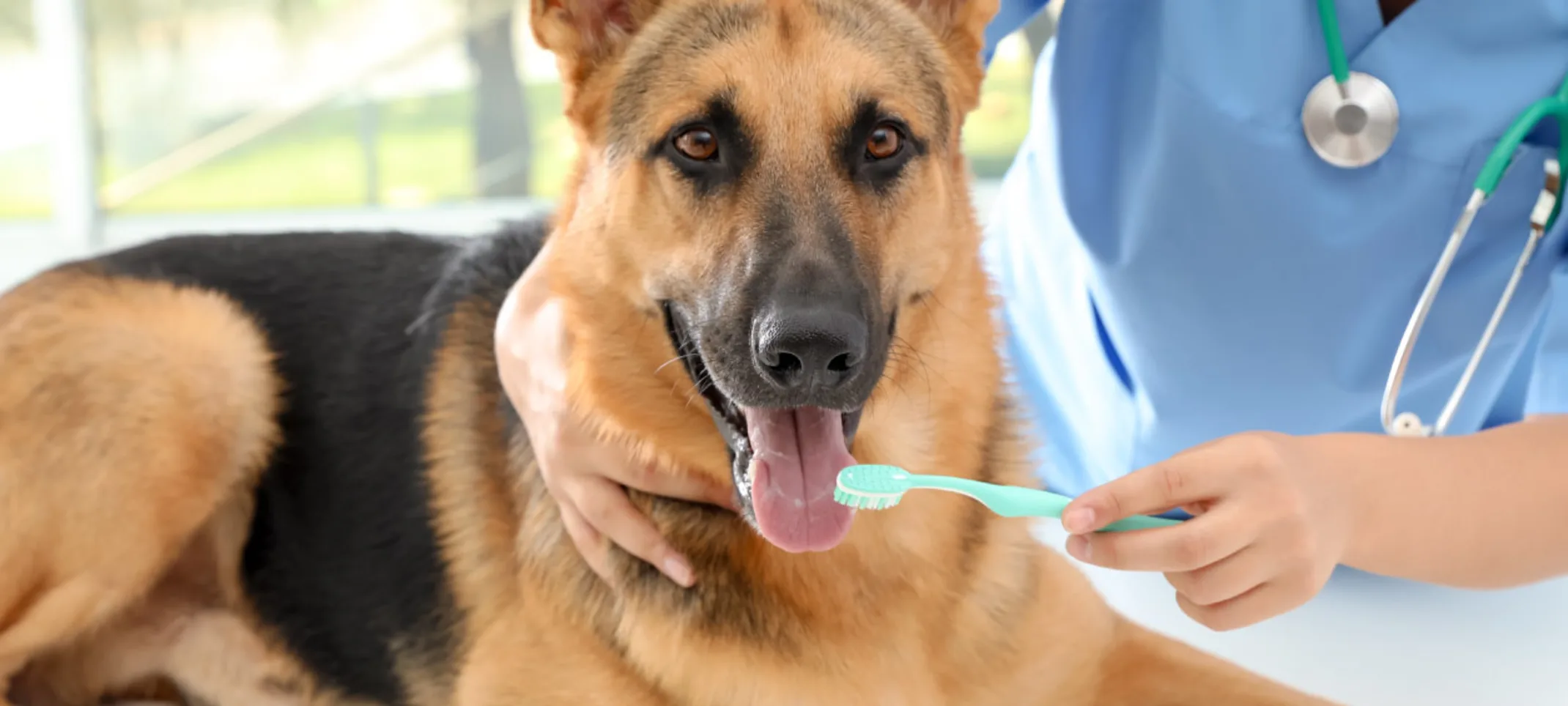Carriage Animal Hospital
Dentistry
Annual dental exams and cleanings are recommended to protect your pet from many health problems and help them maintain a healthy and clean mouth.

Overview
Studies show that 50% of all dogs and cats have some form of periodontal disease. That number jumps to 80% of pets that are 3 years of age or older. If left untreated, periodontal disease can cause infection, pain, and tooth loss over time. It can also lead to serious health problems like microscopic changes in the heart, liver, and kidneys. Because of this, we recommend an annual veterinary dental healthcare examination for all pets.
Our Cat and Dog Teeth Cleaning and Dental Services
With our cutting-edge dental equipment, we can effectively diagnose and treat gum disease in its earliest stages. This involves the following services:
Digital dental radiography
Allows our team to fully evaluate the extent of gum disease and other oral conditions in pets. In turn, this enables us to make a more complete and accurate diagnosis and therefore devise the best treatment. X-rays can also help us determine if any extractions will be needed.
Pre-anesthetic blood work
All dental cleanings must be performed with pets under general anesthesia. To increase their safety, we require blood work to assess organ function and check for signs of illness.
Dental cleaning
A technician will clean and polish each tooth, removing accumulated plaque and tartar and smoothing the tooth surface to prevent future buildup.
Extractions
To treat teeth that are loose, broken, or decaying, we need to extract them. Following an extraction, we will take dental X-rays to make sure no roots have been left behind.
Why do pets need dental care?
Many health problems start in the mouth. Plaque, tartar, periodontal disease, and infected teeth serve as a source of inflammation and infection for the rest of the body.
Dental disease is one of the most common problems that we see in dogs and cats. It can cause drooling, reluctance to eat, swelling, bad breath, redness of the gums, loose teeth, and tooth discoloration.
When should I seek dental care for my pet?
Dental issues and dental-related diseases can easily be prevented by visiting our veterinarians regularly for dental examinations and cleanings. We take a comprehensive approach to dental care including dental health assessment, treatment, and prevention.
How does it work?
Teeth Exams, Cleaning, and Polishing
Dog and cat dental cleanings are very similar to human dental cleanings, except that we are required to use anesthesia to properly and safely examine and clean the teeth. After the cleaning, our veterinarians perform a thorough oral exam and check for signs of disease like gum loss, root exposure, or pockets around the root.
Also similar to human dentistry, we do full mouth radiographs (x-rays) of your pet. This allows our veterinarians to be able to evaluate the roots of your pet's teeth as well as any disease or abnormalities that are located below the gum line and not visible on examination alone.
Minor Oral Surgery
Many teeth require oral surgery to safely remove each individual root. We have extensive training and experience to perform these procedures properly. Pain medications are administered in clinic and provided for in-home aftercare.
How to Tell if Your Pet Has Gum Disease
Gum disease prevention is our primary goal for every pet–it not only affects the mouth, but the whole body. Your pet’s heart, liver, and kidneys can become infected if bacteria from their mouth enters their bloodstream. This infection can result in illness and a shorter life.
Gum disease can begin developing in pets as young as three years old, and its symptoms may vary:
Yellow/brown teeth
Teeth that are loose, broken, and/or decayed
Bad breath
Excessive drooling
Difficulty eating/chewing
Red, swollen (and sometimes bleeding) gums
Swelling around the muzzle/face
Won’t play with chew toys or engage in tugging games
